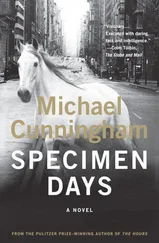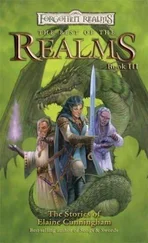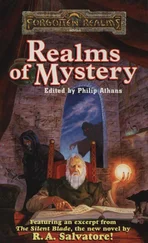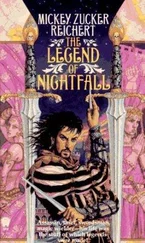Peter has a terrible urge to touch the boy’s face. Just to touch it.
Whoa. What’s that about?
Okay, there’s gay DNA in the family, and he whacked off with his friend Rick throughout junior high, and sure, he can see the beauty of men, there’ve been moments (a teenage boy in a pool in South Beach, a young Italian waiter at Babbo), but nothing’s happened and he hasn’t, as far as he can tell, been suppressing it. Men are great (well, some of them) but they’re not sexy.
Still, he wants to touch Mizzy’s face. It isn’t erotic; not exactly erotic. He wants to touch this slumbering perfection that won’t last, can’t last, but is here, right now, on his couch. Just to make contact with it, the way the faithful want to touch the robe of a saint.
Of course, he doesn’t do it. As he stands, his knees crack. Mizzy, mercifully, sleeps on. Peter goes into the bedroom, closes the curtains, doesn’t turn on the light. He takes his clothes off and lies down on the bed. To his surprise he falls almost immediately into a deep, dark slumber, during which he dreams of armored men, standing at attention in the snow.
Peter tried to murder his brother only once, which, by the standards of brothers, is modest. He was seven, which would have made Matthew ten.
Most little boys are girlish; Matthew’s… Matthew-ness wasn’t fully apparent until he got a bit older. By the age of ten he could sing (badly) every song ever recorded by Cat Stevens. He insisted on a paisley bathrobe, which he wore constantly around the house. He seemed, at times, to be developing an English accent. He was a fine-featured boy walking through the rooms of a stolid beige-brick house in Milwaukee, dressed in a green paisley robe that fell just above his ankles, singing “Morning Has Broken” or “Wild World,” softly, wistfully, clearly meant to be overheard.
Their parents—Lutherans, Republicans, members of various clubs—did not torment Matthew, maybe because they suspected the world would torment him sufficiently on its own, or maybe because they weren’t yet ready to abandon the notion that their older son was a prodigy, expressing random if rather peculiar enthusiasms that would solidify, over time, into a significant, remunerative career. Their mother was a handsome, hefty, big-jawed woman, pure Swede, whose profoundest fear was of being cheated and whose deepest conviction was that everyone was trying to cheat her. Their father, handsome but a little blank, unfinished-looking, vaguely Finnish, never fully adapted to his good fortune in marrying their mother, and lived in his marriage the way an impoverished relation might live in the spare room. It’s possible that their mother refused to be cheated out of two healthy, unalarming Wisconsin sons, and that their father simply went along with her. For whatever reasons, they were uncensorious with Matthew. They did not object when he started wearing knickers to school, or when he declared his intention to take up figure skating.
It was left to Peter, then, to torment him.
Peter lacked the focus and ambition of a true sadist. Nor did he hate Matthew, at least not in the purest sense. He did, however, spend most of his early years in an almost constant state of apology. He was loved but he could not, at the age of six, read aloud from their parents’ Collected Poetry of Ogden Nash , and did not, at the age of seven, write, direct, and star in a neighborhood children’s production of a play, with music, entitled Man Overboard , which made their mother weep with laughter. From the very beginning, Matthew absorbed whatever stray molecules of eccentricity or accomplishment might reside in odd corners of the house; whatever wasn’t Matthew was just dark furniture and ticking clocks and a collection of antique cast-iron banks their mother had been accumulating since before she met their father.
Most infuriating to Peter, though, was Matthew’s innocent and untroubled affection for him. Matthew, it seemed, considered Peter to be a kind of pet, trainable but limited. One can teach a dog to sit, fetch, and stay; it would be silly to try to teach it to play chess. When Peter was a toddler, Matthew made outfits for him and paraded him around in them. Peter can’t remember any of that, but there are photographs: little Peter in a bee suit, with goggles and antennae; in a toga made from a pillowcase, with a circle of ivy obscuring his eyes. When Peter was a bit older (he has fleeting memories of this), Matthew devised for him an alter ego: Giles the manservant who, despite his humble origins, was determined to prosper in the world by dint of hard work, which generally involved keeping his and Matthew’s room tidy, performing household tasks for their mother, and running errands for Matthew.
What Peter found most appalling: he liked being Giles. He liked fulfilling modest expectations. He went about his assigned tasks with prim satisfaction, and actually believed he would prosper (at what?) if he obeyed cheerfully and uncomplainingly. In fact, though he can’t quite remember, it’s possible that Giles the manservant had been his idea to begin with.
It wasn’t until around the time he turned seven that he began to fully understand that he was the lowest member of the household, and always had been. He was the reliable, unexceptional one; the good-enough boy.
The attempted murder took place unexpectedly, on a bright, cold day in March. Peter was crouched on the flagstone patio in the winter-browned backyard, a tiny figure in a red plaid jacket under an ice blue sky. He had illicitly taken one of his father’s screwdrivers out of the garage, in order to work unsupervised on the gift he was making for his mother’s birthday: a birdhouse from a kit. He was hopeful, but troubled. He suspected his mother didn’t want a birdhouse (she’d never expressed any interest in birds), but he’d been at the hobby shop with his father and had seen the box, which depicted a perfect little gabled house on a field of pale turquoise, encircled by ecstatic cardinals and bluebirds and finches. It seemed to Peter a vision of heavenly reward, and he was struck—he was transported, really—by the notion that he could convey this sliver of perfection to his mother and that in some way both he and she would be changed, he into a boy who could guess her secret desires and she into someone who ardently wanted what he had to give. Peter’s father frowned over the fact that it was meant to be assembled by children ten or older, and before agreeing to buy it extracted from Peter the promise that the two of them would build it together.
Which vow Peter disregarded, as soon as he was home alone. He needed to produce something marvelous, by his own hand. His mother would tear up with joy and his father would nod, judiciously and affectionately—sure enough, our younger boy is capable beyond his years.
Naturally, the birdhouse, when taken from the box, proved to be made of dull brown fiberboard. It came with exactly the required number of silver screws, a single sheet of instructions printed on pale green paper, and—somehow, most dispiriting of all—a small cellophane packet of birdseed.
Squatting over the pieces, which he’d laid out on the flagstones, Peter struggled to retain his optimism. He would paint it some brilliant color. He might decorate it with pictures of birds. Still, at the moment, the components—two gabled ends and various rectangles meant to be walls, floor, and roof—were so inert and unpromising he found himself fighting off the urge to go inside and take a nap. The pale, biscuity brown of the fiberboard might have been the color of discouragement itself.
Nothing to do, though, but begin. Peter matched a gabled end with a wall piece, put a screw into the predrilled hole, and turned it.
Читать дальше
Конец ознакомительного отрывка
Купить книгу












